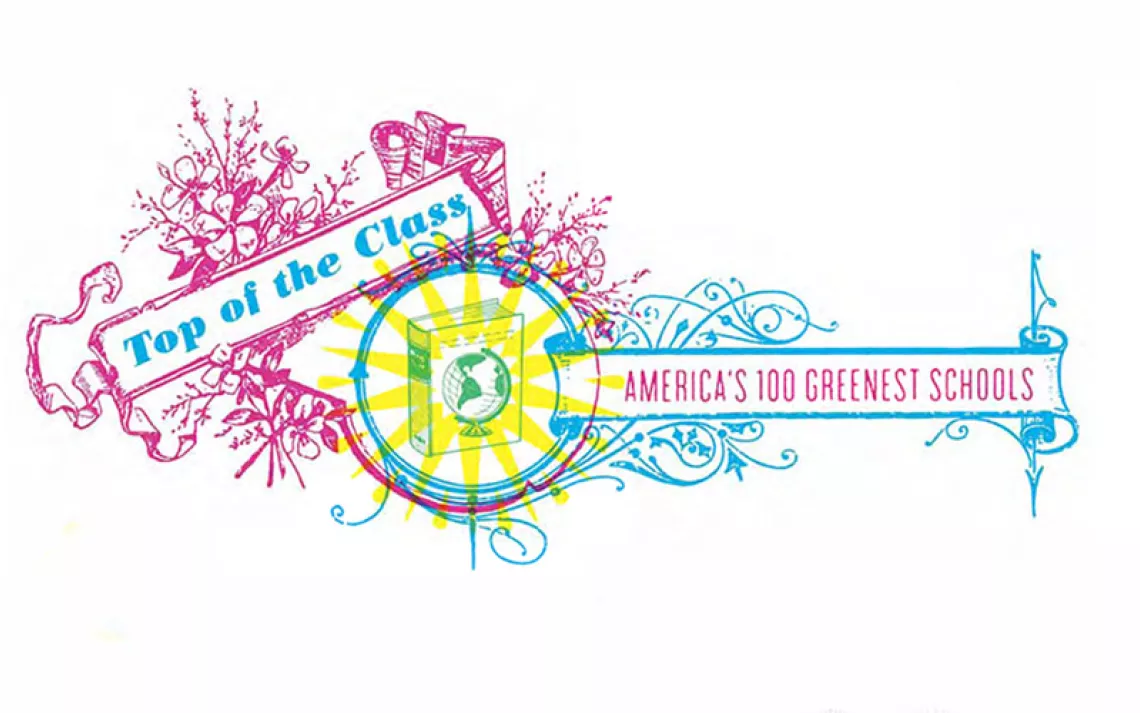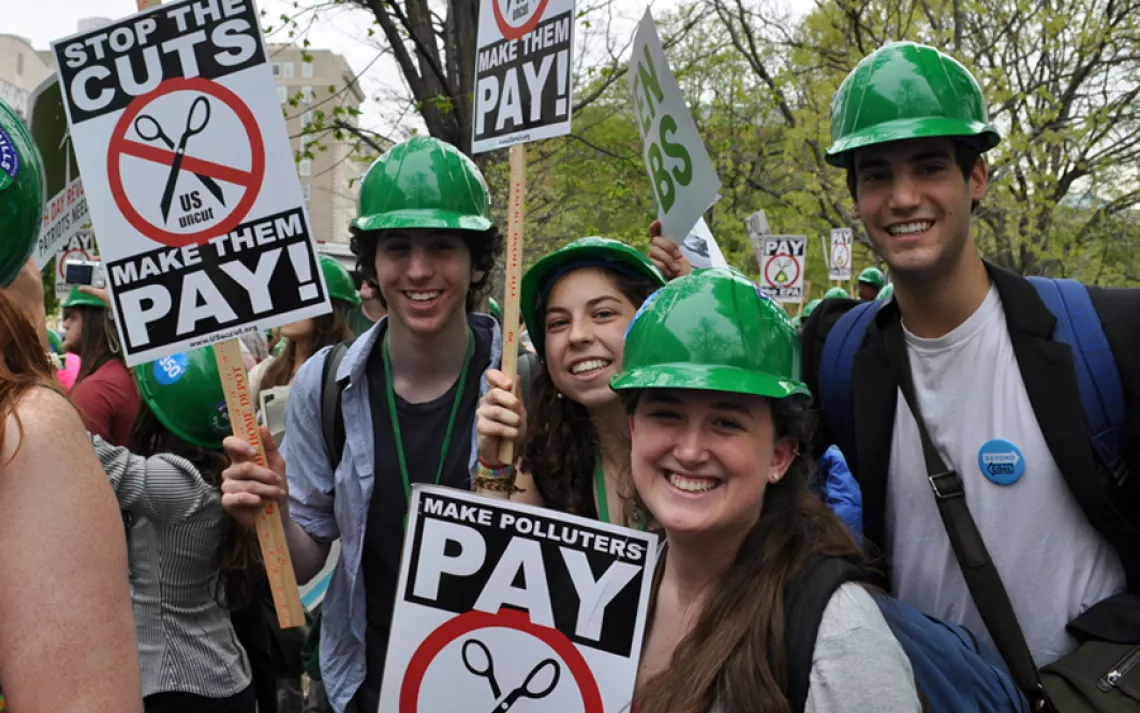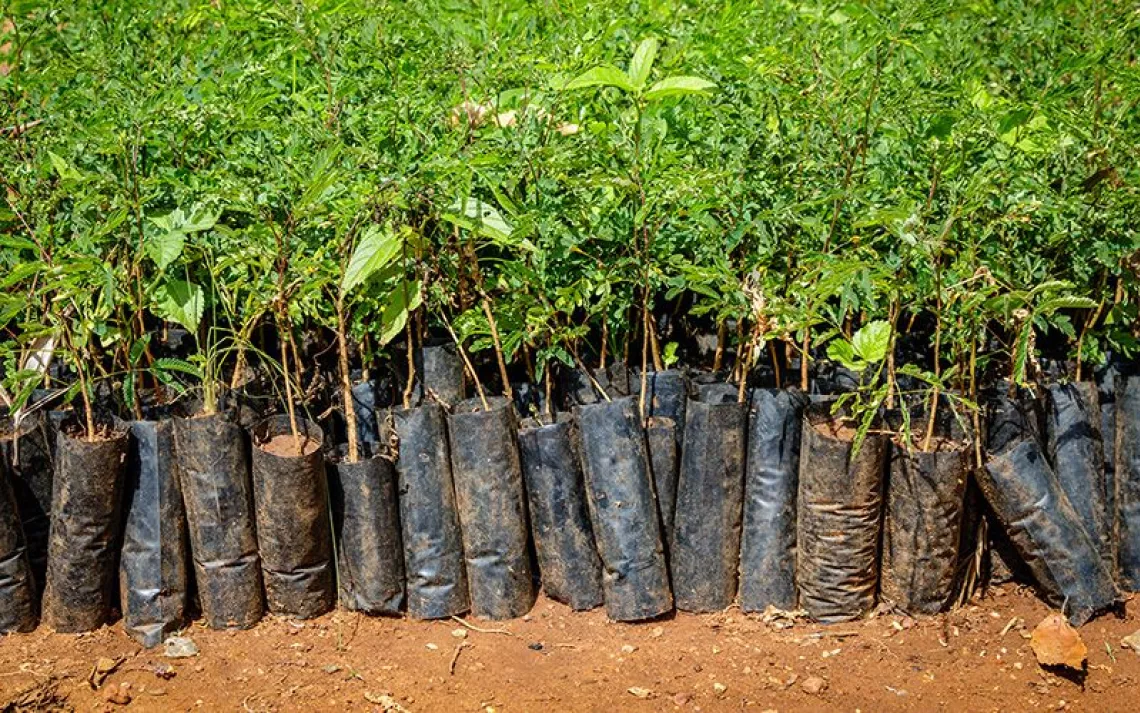5 Powerful—and Very Online—Youth Climate Activists
Here’s how they connect and educate international audiences via social media
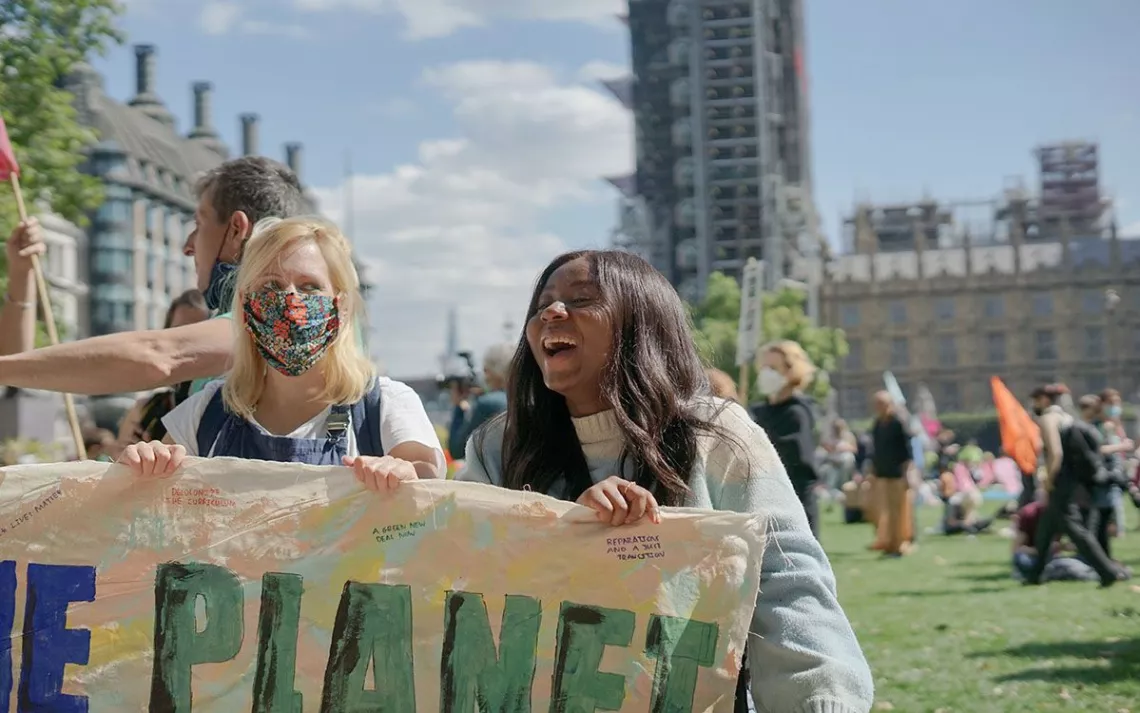
Courtesy of activist Daze Aghaji (pictured, right)
Two years ago, while campaigning to become a member of European Parliament in the UK, then-19-year-old Daze Aghaji preferred tea and cupcakes to social media crusades.
With a self-proclaimed “door-knocking mentality,” she went dining room to dining room throughout her hometown of London, sharing her platform of climate advocacy, environmentalism, and social justice. But in the time since, especially as the world has moved online during the COVID-19 pandemic, Aghaji—widely considered the youngest-ever candidate for European Parliament—has carried her messaging into the realm of social media.
“How can I create an environment where I am healthy, so I can do the work I need to do in regards to climate change?” she says. “When you link participatory and localized democracy, there is something quite beautiful about the use of social media at the moment.”
Aghaji gravitates to Instagram Live (see below), where she can connect with young people around the world who are creating and finding their virtual climate communities. She can also operate independently of the climate news cycle, which can often feel like a “barrage of hopelessness,” she says, and be “draining on mental health.”
Empathy, hope, and love are key components of Aghaji’s environmental messaging. “I’ve never experienced a stable climate in my life, but I’ve still experienced vast amounts of joy,” she told Sierra. “Joy in people, in nature, in the world.”
Like Aghaji, young people around the world are using digital media to educate and share green messages. Certain online activists are especially inspiring—those whose messages are holistic and inventive.
“There is something about the intent of social media, to make things easy to understand, that can actually strip the essence of the big issues we face,” Aghaji says. “It’s not enough to put six images and a bit of writing. It’s important to tell the truth in a way that’s honest and explicit, that also helps people find agency.”
Get to know some young climate communicators who are imbuing the online environmental sphere with urgency, creativity, and empathy.
Xiuhtezcatl Martinez, who also goes by X, is a 21-year-old hip-hop artist, environmental activist, model, and philanthropist. Self-described as a “skilled code-switcher,” X is of Aztec descent, grew up in Mexico, and now lives in Colorado. He shares his music and climate messages in Spanish, English, and his native language, Nahuatl, and famously spoke all three while delivering an impassioned speech at the United Nations General Assembly on Climate Change in 2015. He is currently a plaintiff in multiple lawsuits concerning failed climate action, including one against the US government, and was the youth director of Earth Guardians, a youth-empowered environmental activist organization, through 2019.
X articulates his political and organizational climate messaging via his music, which he shares on Spotify, Soundcloud, and YouTube. He describes his latest album, Voice Runners, as “a project that reflects [his] identity and struggles as a young Indigenous man growing up as a minority in mainstream America.” The most-promoted single off the record, “Take It All Back,” stands out as X’s decolonizing, land-back anthem. A pointed message to colonial powers, he raps: “Flexin’ where you from when that s--- stolen land,” and later, “A wolf in sheep's clothing, treaties all broken / They built this nation off lies that they've spoken.”
Storytellers Georgia Wright and Julianna Bradley describe their show, Inherited, as “a narrative podcast for, by, and about the youth climate movement.” The hosts, both recent college graduates, guide conversations about what it means to grow up under the weight of the climate crisis while highlighting the activism and stories of their peers. The show dives unapologetically into the young person’s climate zeitgeist: Wright and Bradley cover everything from innovative Tinder protests—the act of "swiping right" on the app then messaging matches information about upcoming elections or gatherings—to Capitol Hill sit-ins, to the student-led pushes for fossil fuel divestment at universities across the country. As Wright and Bradley quip, in their podcast’s Spotify tagline, “We didn’t choose the world we inherit, but we do choose what we do with it.”
As much as Inherited focuses on politics and current events, it creates space for sensitivity, hope, and other intangibles. “There is a difference between people who have never experienced climate change and those who have but are still in denial,” Wright says in the third installment, “The Party Poopers.” “In fact, the act of pushing the topic away is in itself an effect of climate change. What we’re experiencing is psychological as much as it is meteorological. We need to talk about what we’re feeling.”
The fourth and final episode of the podcast’s inaugural season, “The Green New Dream,” encapsulates this empathic community: Inherited listeners shared their own green dreams for a healthier climate future. The audio recordings create a tapestry of hope.
The Philippines is the most dangerous country in Asia for land defenders and climate activists. But this doesn’t deter 23-year-old Mitzi Jonelle Tan from standing up to mining and oil companies in their home country and fighting for environmental causes across the globe. With their organization, Youth Advocates for Climate Action Philippines, they’ve organized marches in Manila, carrying lanterns made from recycled materials, and this past March, dispatched strikers to four different cities across the country for a coal-divestment protest. Their webinar series, in partnership with Fridays for Future, takes these demonstrations online.
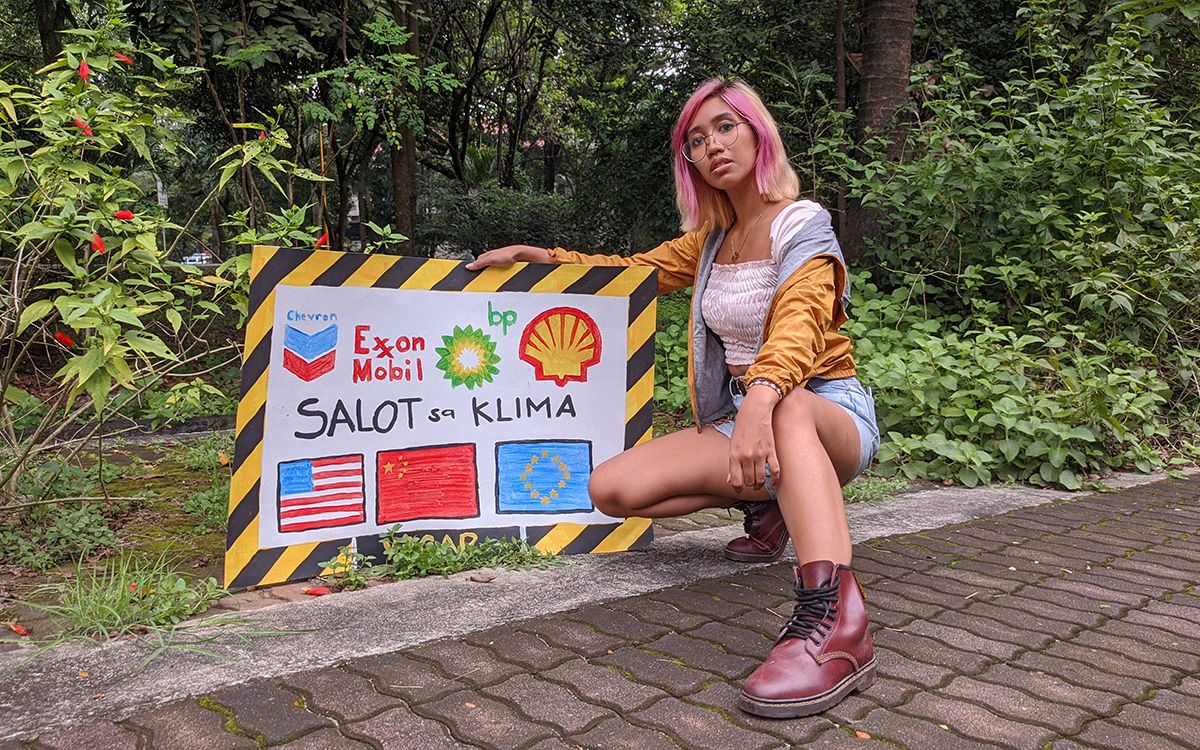 “With everything I do, I see it as one movement—the people's movement coming together from different approaches,” Tan says. “We need to use every tool available to us, and online communication is one of the best tools we have.”
“With everything I do, I see it as one movement—the people's movement coming together from different approaches,” Tan says. “We need to use every tool available to us, and online communication is one of the best tools we have.”
For Tan (pictured, right), the occupation of digital space is particularly important in the global south and most affected peoples’ areas (MAPA). When they’re not participating in on-ground activism, Tan is creating climate-justice Twitter threads, TikTok videos, and in-depth Instagram guides chock-full of information and resources.
Over the past year, these easily accessible resources have been particularly important in keeping up the climate fight. The COVID-19 pandemic hit the Philippines especially hard, and coping with both public health and climate crises, Tan says, has been a challenge. They emphasize the importance of resisting the urge to give in to a “climate doomism, end-of-the-world, there's-nothing-we-can-do” headspace. Openly talking about climate anxiety and acknowledging sometimes that “mental health issues are rooted in the climate injustice and inaction of world leaders,” they say, are important.
As is knowing when to rest and remove oneself. “The best approach to using social media is to remember that it isn't about the numbers but the people behind the numbers you are reaching and connecting with,” Tan says. “It's also important to know when to take a step back, and take breaks.”
During these moments of individual rest, Tan says, the worldwide fight for climate justice does not pause; it is the nature of social media to allow for continuous momentum-building, sharing, and communicating.
“In whatever I do, I know I'm moving with the other movements as well,” Tan says. “The greatest achievement for me is when I see the people that I encouraged to become activists flourishing and becoming leaders and empowering others to be activists as well.”
 The Magazine of The Sierra Club
The Magazine of The Sierra Club
